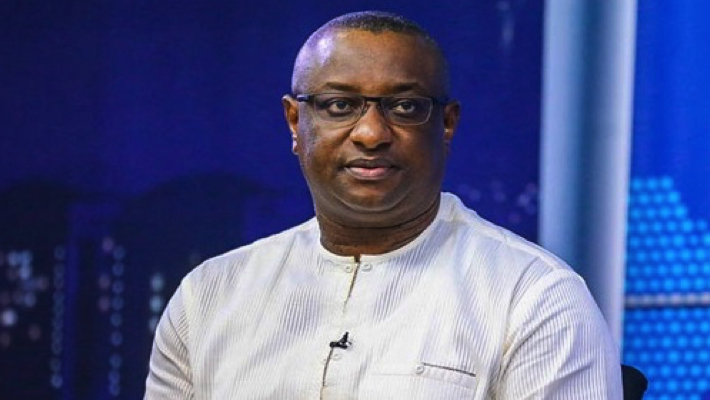Local airlines will begin paying import duties and Value Added Tax (VAT) on the importation of commercial aircraft, commercial aircraft engines, spare parts, and air tickets starting from January 1st, 2026.
NATIONAL ECONOMY reports that the new Tax Reforms Act would begin implementation in 2026, and Airline Operators of Nigeria (AON) had said the Nigerian Tax Reforms Act of 2025 would collapse the nation’s aviation sector.
The vice president of AON, Dr Allen Onyema said the Tax Reform Act will collapse local airline businesses in 48 hours if implemented.
According to him, Nigerian airlines are already overtaxed and placing additional taxes on them will collapse the already burdened industry.
“I don’t know who put the clause on the tax reform that airlines should start paying Customs duty and 7.5 per cent Value Added Tax (VAT) on imported aircraft, spare parts and even airfares,” Onyema said.
However, speaking at a Business Webinar jointly organised by Aviation & Allied Business in collaboration with the Federal Inland Revenue Service (FIRS), with the theme: ‘Nigeria Tax Act (2025) & The Aviation Industry: Aviation Sector Enlightenment Initiative,’ the federal government declared that there is no going back on the full implementation of the new Tax Reforms Act, which is slated to commence operations from January 1, 2026.
Assistant director, Nigeria Revenue Service (formerly FIRS), Nkechi Umegakwe, in her presentation, said the government had done all the due diligence before coming up with the new tax laws.
Umegakwe, who was the lead presenter at the event, insisted that, it was mandatory for airline operators, including other allied businesses in the aviation sector, to now pay the Value Added Tax (VAT) on all of their services and operations.
Currently, airlines are exempt from the payment of import duties and VAT on the importation of commercial aircraft, commercial aircraft engines, spare parts, and air tickets.
She insisted that all the above are now liable to VAT from January 1, 2026.
According to her, the new tax reforms were geared towards increased revenue generation for the federal government, business cost reduction via VAT recovery, improved cash flow for businesses, and stronger compliance via digital invoicing and tracking, among others.
Umegakwe expressed that, under the new tax reforms, various taxes are now harmonised to create a unified system to eliminate inconsistencies and drive efficiency, while it also simplified the current tax laws.
She said: “VAT is a consumption tax on goods and services to be borne by the end users and not the suppliers. Once the new tax reforms become operational, whatever you bring in as an airline – aircraft, engines, spare parts, and others – you must pay VAT on them.
“However, if the taxes are in essence, the airlines can ask for a refund, which would be done within 30 days of request. But, with the new tax reforms, airlines will no longer be exempt from payment of VAT.”
But the Area manager, West and Central Africa, IATA, Dr. Samson Fatokun, in his contribution as a member of a panel, criticised the government for inconsistencies.
Fatokun, in his presentation, said the airlines and other operators in the sector were already overburdened with numerous levies and charges, wondering why the government was bent on adding to the current challenges in the sector.
Fatokun mentioned the payment of 5 per cent Ticket Sales Charge/Cargo Sales Charge (TSC/CSC) by the airlines as one of the levies the airlines were currently battling with. He maintained that, the 5 per cent TSC/CSC inflated the price of air tickets and scared away some potential air passengers from the sector.
He expressed that President Bola Tinubu, in December 2024, as the chairman of ECOWAS, signed a treaty with other member nations, which prohibited taxes on air passengers and cargo. The new treaty would take effect from January 1, 2026.
Apart from this, he also said, Nigeria, as ‘a full member’ of the International Civil Aviation Organisation (ICAO), signed a treaty, which prohibited payment of VAT in air transportation, reiterating that, the aviation industry is cost recovery, not revenue generation.
He added that, “Aviation is a global business; there are treaties signed to regulate the global industry. Nigeria, as a member of ICAO, is subject to the recommendations and regulations of the organisation.
“The Nigerian tax authority needs to be aware of international treaties Nigeria entered into with various countries. As it is, we are contravening the treaties we already entered into with the return of VAT for airlines.”
Also speaking, aviation expert, Capt. Samuel Caulcrik said, the various taxes and levies in the sector were already choking the operators and slowing down the growth of the business. He argued that, payment of 7.5 per cent VAT and TSC/CSC by the airlines would amount to multiple taxation on the industry and called on the government to rescind its decision.
Caulcrik further posited that all the money being spent on the sector comes from air passengers and shippers, noting that, any additional tax would kill the industry.
Also, the managing drector of Pathfinder Securities, Mrs. Nkechi Onyenso, canvassed for further engagements by the Federal Government and aviation business stakeholders. According to her, the paucity of foreign exchange, multiple taxation, and other levies had negative impacts on the aviation industry generally. She, however, said the new Tax Reforms Act had its own advantages, but insisted there was room for more engagement





